Remanufactured Engines
Spotting Signs of Engine Trouble: When to Consider a Remanufactured Engine
As vehicle owners and drivers, understanding the signs of engine trouble is essential for maintaining the health and performance of our cars. With that being said, engine issues can manifest in various ways, from subtle warning lights to more pronounced symptoms like jerking and unusual noises.
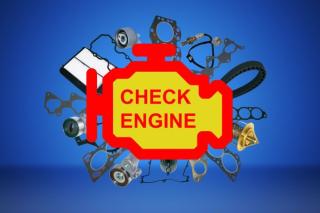

By Patriot Engines
 As vehicle owners and drivers, understanding the signs of engine trouble is essential for maintaining the health and performance of our cars. With that being said, engine issues can manifest in various ways, from subtle warning lights to more pronounced symptoms like jerking and unusual noises.
As vehicle owners and drivers, understanding the signs of engine trouble is essential for maintaining the health and performance of our cars. With that being said, engine issues can manifest in various ways, from subtle warning lights to more pronounced symptoms like jerking and unusual noises.
In this blog, we'll delve into the top signs of engine damage, how to diagnose potential problems, and the pivotal decision of when to replace an engine. Additionally, we'll explore the concept of remanufactured engines and why Patriot Engines stands out as a reliable solution!
What Are the Top 5 Signs of Engine Trouble?
Your car is a complex machine, and its heart is the engine. To ensure its smooth operation and avoid costly repairs, it's crucial to pay attention to its health. By understanding common signs of engine trouble, you can save yourself time, money, and frustration down the road. The top 5 Signs that may indicate that your car needs attention include:
1. Warning Lights: Always pay attention to illuminated warning lights, especially the "Check Engine" light. This light can indicate various issues, from minor sensor malfunctions to serious engine problems. Ignoring it can lead to more extensive and costly repairs.
2. Unusual Noises: While your engine naturally produces some noise, be wary of any sudden or drastic changes. Knocking, grinding, rattling, or squealing can signal problems with internal components like pistons, bearings, or belts. Don't hesitate to have a mechanic diagnose the source of the noise to avoid further damage.
3. Jerking and Rough Running: A smooth ride is a sign of a healthy engine. If you experience jerking or hesitation during acceleration, deceleration, or turning, it could indicate issues with the spark plugs, fuel injectors, or ignition system. Ignoring rough running can lead to decreased performance and fuel efficiency.
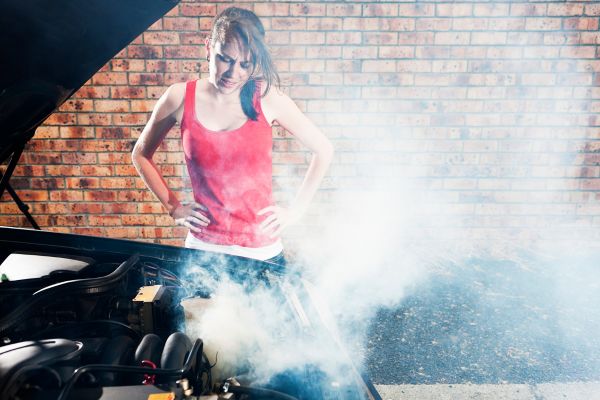 4. Excessive Smoke: Thick clouds of black, blue, or white smoke coming from your exhaust are a cause for concern. Black smoke suggests incomplete combustion, often due to fuel or air filter problems. Blue smoke indicates burning oil, which could be a sign of worn piston rings or valve seals. White smoke can signify a head gasket leak, allowing coolant to enter the engine.
4. Excessive Smoke: Thick clouds of black, blue, or white smoke coming from your exhaust are a cause for concern. Black smoke suggests incomplete combustion, often due to fuel or air filter problems. Blue smoke indicates burning oil, which could be a sign of worn piston rings or valve seals. White smoke can signify a head gasket leak, allowing coolant to enter the engine.
5. Changes in Fuel Efficiency: If you notice a significant decrease in fuel efficiency, it's time to investigate. Various factors, including failing sensors, clogged air filters, worn spark plugs, or a faulty oxygen sensor, can cause this. Addressing these issues can improve your fuel economy and save you money at the pump.
How to Diagnose Engine Problems
Early engine diagnosis and intervention are key to preventing minor engine issues from evolving into costly repairs.Common Symptoms:
- Misfiring: Engine sputters or hesitates while accelerating, usually accompanied by a jerking motion.
- Stalling: Engine shuts off unexpectedly while driving or idling.
- Rough Idle: Engine vibrates or shakes excessively at idle.
- Decreased Power: Loss of engine acceleration and responsiveness.
- Unusual Engine Noises: Knocking, ticking, rattling, or grinding sounds.
- Excessive Oil Consumption: Requires frequent oil refills.
- Exhaust Smoke: Blue smoke indicates oil burning, black smoke suggests fuel inefficiency, and white smoke points to coolant leaks.
- Illuminated Check Engine Light: Signals potential issues detected by onboard diagnostics.
Basic Checks:
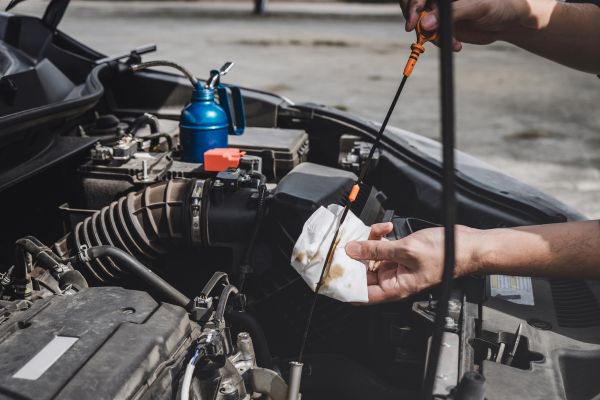 Fluid Levels: Check engine oil, coolant, and brake fluid levels regularly. Top off as needed and investigate any unusual fluid consumption.
Fluid Levels: Check engine oil, coolant, and brake fluid levels regularly. Top off as needed and investigate any unusual fluid consumption.- Visual Inspection: Look for loose or damaged belts, hoses, and wires. Check for leaks, cracks, and signs of wear and tear.
- Battery: Ensure the battery terminals are clean and free of corrosion. Check the battery voltage with a multimeter.
- Air Filter: Inspect the air filter for dirt and debris, which can reduce engine performance. Clean or replace it as needed.
- Spark Plugs: Check for worn or damaged spark plugs, which can lead to misfiring.
Important:
- If you are unsure about any aspect of diagnosing engine problems, consult a qualified mechanic.
- Addressing minor issues promptly can prevent them from escalating into major repairs, saving you time and money in the long run.
- Regular maintenance, including routine oil changes and tune-ups, can help prevent engine problems and extend the life of your vehicle.
By actively monitoring your engine for potential issues, you can confidently address problems early on, ensuring the smooth operation and longevity of your vehicle.
When to Replace an Engine?
Remember, if you're experiencing any strange car symptoms, it may be time to consult a mechanic about your options, which can include a remanufactured engine. Before we explore why remanufactured engines might be the solution, let's understand what they are.
What is a Remanufactured Engine?
Remanufactured engines go through a meticulous process of rebuilding to meet or exceed the original manufacturer's specifications. They offer a cost-effective alternative to a brand-new engine while maintaining high reliability and performance.
Benefits of Remanufactured Engines
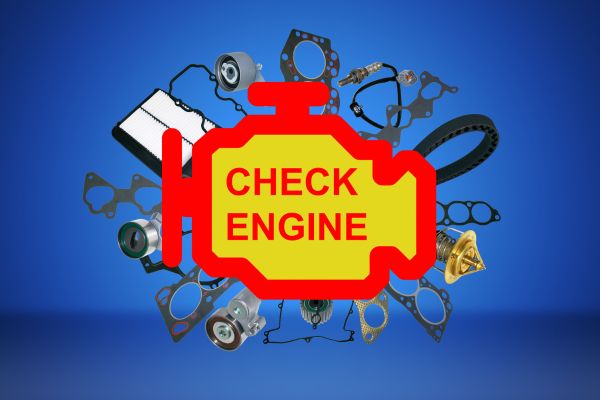 Remanufactured engines offer an ideal solution for vehicle owners seeking to elevate their driving experience while ensuring quality, performance, and value. These engines come with numerous advantages, making them a compelling choice for anyone considering engine replacement. Some remanufactured engine benefits include:
Remanufactured engines offer an ideal solution for vehicle owners seeking to elevate their driving experience while ensuring quality, performance, and value. These engines come with numerous advantages, making them a compelling choice for anyone considering engine replacement. Some remanufactured engine benefits include:
- Cost-effectiveness: Remanufactured engines are typically significantly less expensive than new engines, sometimes up to 50% less. This is because remanufactured engines are rebuilt using a combination of new and used parts, while new engines are made entirely from new parts.
- Quality: Remanufactured engines are held to the same high standards as new engines. They are disassembled, cleaned, inspected, and reassembled using state-of-the-art equipment and techniques. All of the parts are either replaced with new ones or reconditioned to meet the original specifications.
- Performance: Remanufactured engines are designed to meet or exceed the original performance of the engine. This is because they are rebuilt using the latest technology and materials.
- Warranty: Remanufactured engines typically come with a warranty that is similar to the warranty on a new engine. And guess what? When you choose Patriot Engines, you gain access to a 2-year/24,000-mile parts and labor warranty.
Why Choose Patriot Engines?
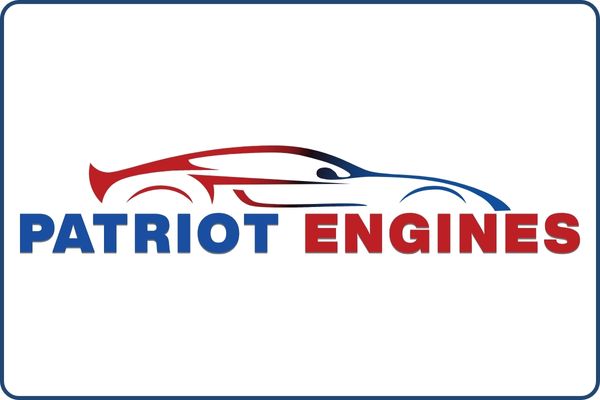 At Patriot Engines, we're your go-to choice if you want top-notch quality, a solid warranty, options to customize, and awesome customer support.
At Patriot Engines, we're your go-to choice if you want top-notch quality, a solid warranty, options to customize, and awesome customer support.
We're all about engines – whether they're gently used or remanufactured, we've got you covered for various makes and models. Our mission is to make sure you get back on the road with a smile.
Give us a call at (888) 823-7800 for a quote. Let's get you a remanufactured engine and get you back on the road ASAP!
